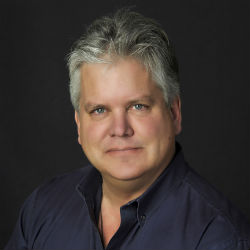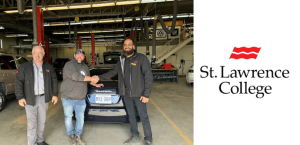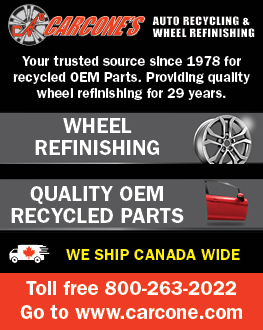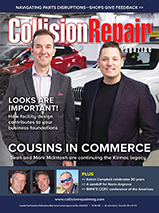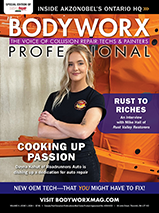By Andrew Shepherd
Globalization is one of those lofty concepts that gets studied in second year Political Economy courses. Over the post-war decades and into the internet age markets have become homogenized (the Coca-Cola effect) and production has moved to lower-cost regions to meet those common market demands.
International trade agreements (GATT, NAFTA, the EU) work to ease the flow of goods and services between countries, which are less and less able to isolate themselves from international pressures. On the “ground floor,” companies get bigger and bigger to meet global requirements and consolidation is the order of the day.
Collision repair is a great example of a sector in the early to middle stages of globalization. The market is truly international, with predictions that Chinese vehicle manufacturers will release new models into the North American market within a year or two, and Western OEMs are working avidly in the reverse direction.
The globalization of auto production and sales in turn puts pressure on collision repairers. There’s pressure to service a wider range of vehicles, to meet requirements of offshore manufacturer headquarters and to adopt new global standards for equipment and training.
One might assume that we will soon be dominated by the “McDonald’s” model of collision repair —companies that operate with a common approach regardless of location, and what was once a very local craft business will be turned into a homogenous and industrial production scheme.
So why does the Canadian collision repair industry stand out in this world? Why were we one of the first to launch large and successful repair networks? How do we continue to produce innovative partnerships between insurer and repairer? How do we avoid legal acrimony in the development of repair standards? How is it that Canada is known for the highest level of collision research and solutions development?
The answer surely lies in our community—the way we build consensus, the way we work together. “The Canadian Model” of collision repair has produced some notable, and unique, outcomes:
- The Canadian Collision Industry Forum (CCIF), which has emerged as a world-leading, consensus-based gathering of collision industry partners. CCIF includes OEMs, insurers, suppliers and repairers in building answers which fit our needs, our strengths and our capabilities.
- AIA Canada’s Collision Council which supports research and development projects designed to move the industry to success—together.
- A “Canadianized” version of I-CAR training—built to recognize a first-class national apprenticeship system, public insurance jurisdictions, major repair networks and suppliers.
- The CCIF Skills Program, which has emerged as one of the most successful youth attraction vehicles of the industry.
- The Canadian Collision Industry Accreditation Program (CCIAP), which will provide a “made-in-Canada solution to repairers, insurers and OEMs.
As the global auto market evolves with lightning speed toward the advent of the autonomous vehicle, the collision repair industry will no doubt face even more demands, and more disruptions. Our Canadian capacity to face the future is unique in the world, and our answers —built in Canada by Canadians— continue to ensure that we lead the world in collision industry innovation.
Andrew Shepherd is the Executive Director of I-CAR Canada, a non-profit organization that provides collision repair training and ongoing education. He can be reached via e-mail at andrew.shepherd@aiacanada.com.



